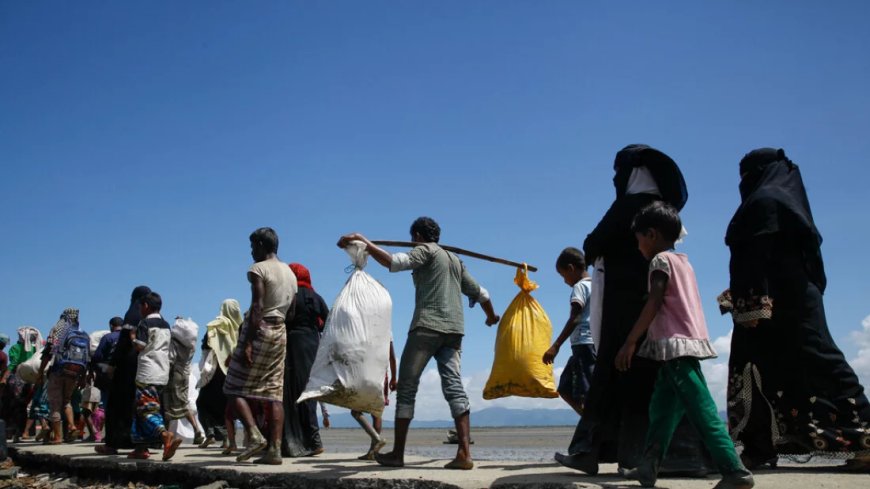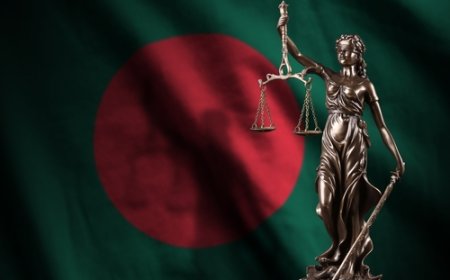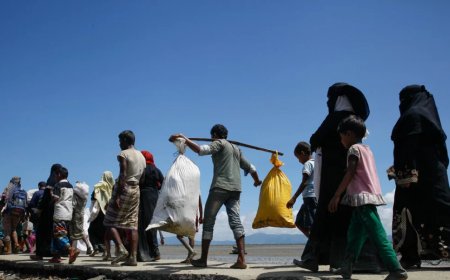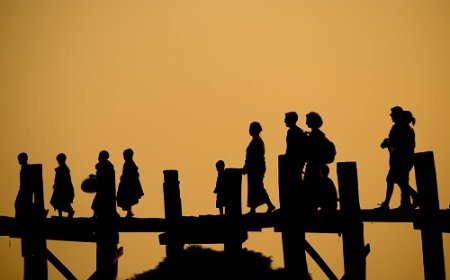Much ado about nothing (much)?
Bangladesh’s debate about a humanitarian corridor highlight broader issues

As a long time Bangladesh watcher, I have noticed a pattern of the country’s political analysts and actors either deliberately or unintentionally misinterpreting foreign policy and security issues. Most often, these debates end up revolving around some alleged nefarious conspiracy (usually involving the United States).
In the past, these conspiracy theories have included the ridiculous claim that the US coveted Saint Martin Island for use as an alleged military base. Another recent example was the US proposal for an innocuous proposed Acquisition and Cross Servicing Agreement (ACSA) to facilitate logistic support during joint exercises and operations.
While Bangladesh does not have a monopoly on conspiracy theories, their prevalence in the country does point to a bigger issue -- the lack of a sufficiently developed strategic community that can help counter these red herrings when they arise.
Most recently, this phenomenon has surfaced with regard to a proposed humanitarian corridor intended to facilitate the provision of much needed humanitarian assistance into Burma’s Rakhine State.
The issue first surfaced in the context of discussions between representatives of Bangladesh’s interim government and the Arakan Army, which has assumed de facto control over Rakhine State.
According to press reports, the two sides discussed ways in which Bangladesh might facilitate the provision of humanitarian assistance into the area in exchange for a political agreement by the Arakan Army to consider the future return of Rohingya refugees.
After these preliminary discussions, the concept has evolved further following talks with the United Nations and other regional actors. In the context of the longstanding and intractable Rohingya refugee issue, these discussions appear both pragmatic and worthwhile, even as there were a number of practical issues that would need to be addressed to implement such an idea.
With Bangladesh’s domestic political environment still unsettled as the Interim Government prepares for the elections that will mark the end of its limited tenure, the humanitarian corridor issue has taken on outsized political significance.
Supporters of the former Awami League regime have been quick to point to this discussion as a sign of the Interim Government’s willingness to sacrifice Bangladesh’s sovereignty and jeopardize the country’s security. These supporters then contrast the Interim Government’s actions with Sheikh Hasina’s supposed “defense” of the country’s sovereignty.
As the debate ensued, other parties have jumped on the bandwagon, expressing caution about the idea and using it to criticize both the Interim Government and the recently appointed National Security Advisor (who had been handling this issue earlier in his capacity as High Representative for the Rohingya issue).
As with the earlier debates about non-issues, the debate about the humanitarian corridor has been characterized by a lack of understanding of what the concept actually involves coupled with a tendency to fill this void with wild speculation.
To make matters worse, self-proclaimed experts reinforce the conspiracy theories as they advance their own agendas and sensationalize the issue.
While Bangladesh does have some legitimate experts who focus on foreign policy and security issues, their numbers are few and far between and their attempts to inject sanity into the public debate are often overwhelmed by the volume of uninformed voices crowding the airwaves.
Efforts by the Bangladesh Government and other international actors to provide clarification are likewise dismissed by those who find comfort in their respective echo chambers. This phenomenon has been made worse in the current social media environment which has been dominated by disinformation and misinformation from both domestic and regional sources.
While this issue is a problem for today’s Interim Government, future elected governments will no doubt face similar challenges. While the penchant for believing in conspiracy theories is not likely to go away, there is more that can be done to counter these false narratives with the truth.
From the Government’s perspective, more importance needs to go to improving strategic communications. Rather than simply reacting to false news that arises, national security officials need to anticipate these and gain the initiative.
In this they can be aided by a more robust strategic community within the country, to include think tanks, academic institutions, parliamentary standing committees, and traditional and new media outlets.
Sufficient resources need to go into developing these institutions and individuals capable of understanding and communicating issues to the population.
Amidst all the discussion of reforms since August 2024, foreign policy and national security issues have been notably absent. As Bangladesh seeks to restore and strengthen its democracy and rebuild institutions it will be important to also include these important subjects.
Otherwise, history is likely to continue to repeat itself.
What's Your Reaction?














































































